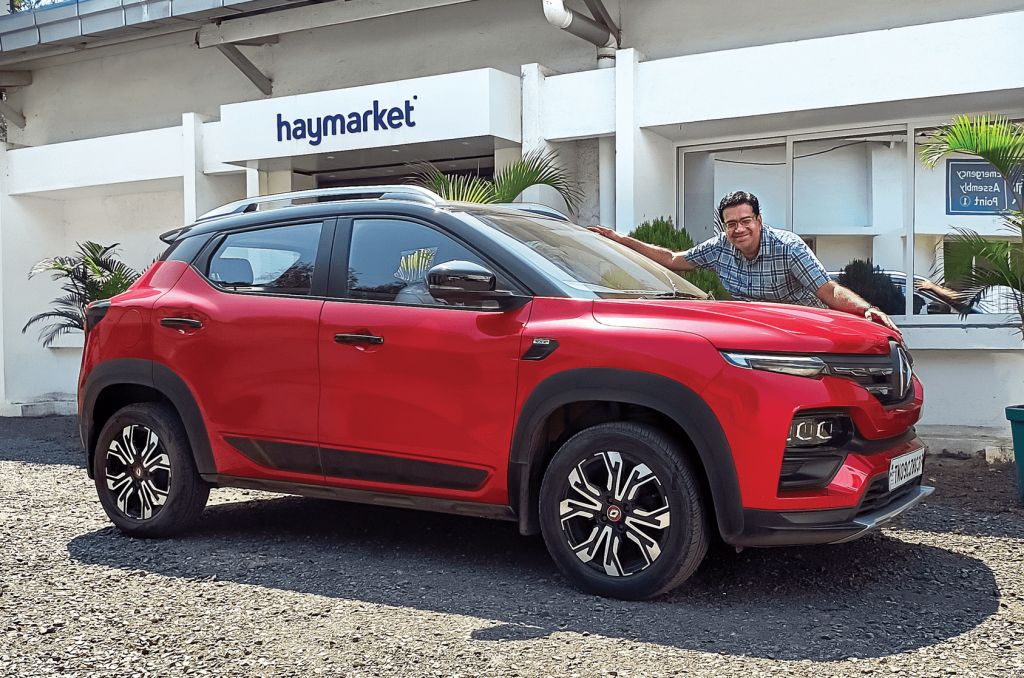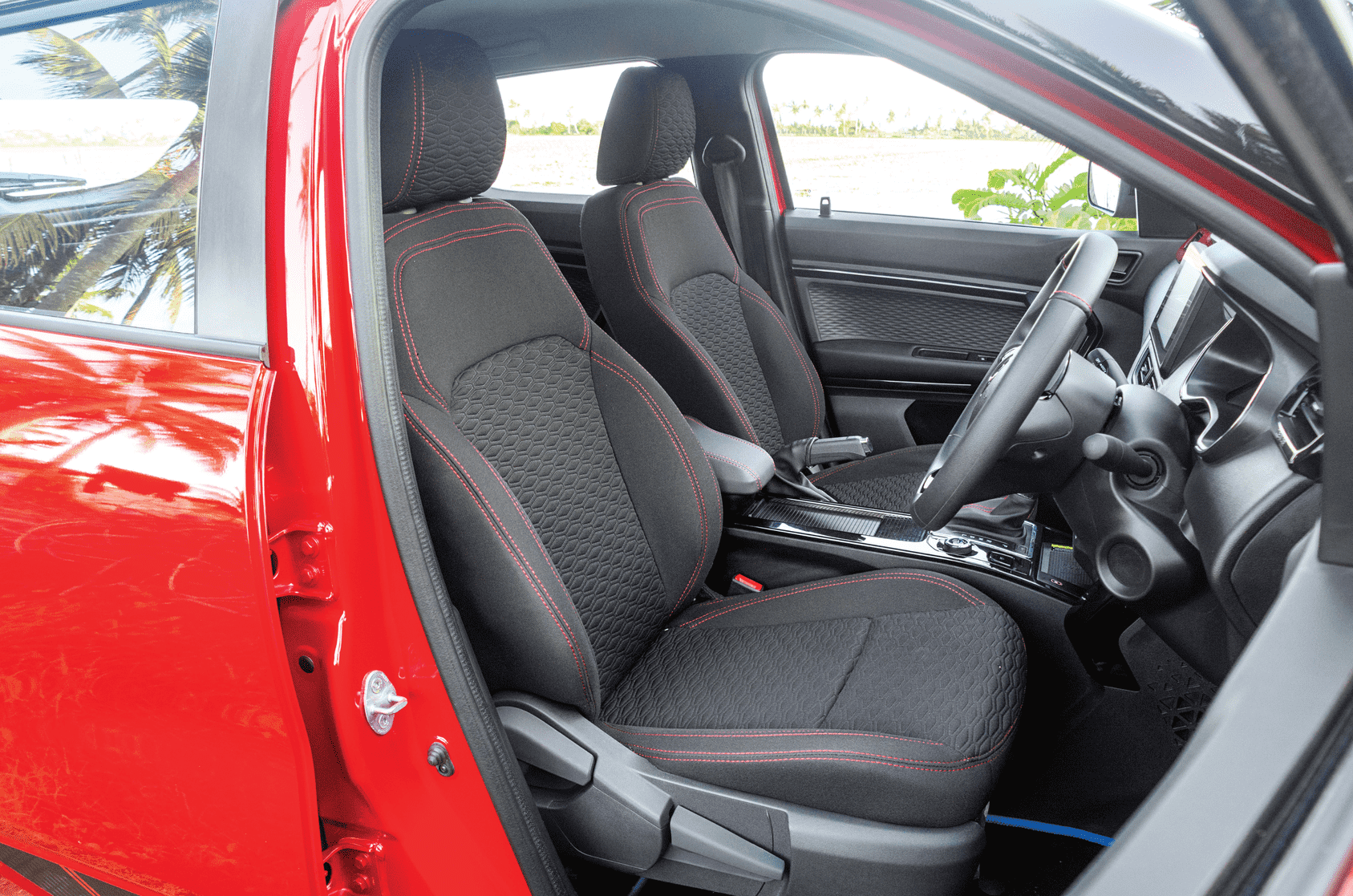
The Renault Kiger CVT has been my ride to work for a year. It replaced the Kiger Turbo MT in our fleet, which I used in the last few months of its tenure with us. Of the two, I enjoyed the CVT more, thanks to its relative effortlessness. The long-term cars that I take home are mostly hatchbacks due to tight parking spots in my locality, and the Kiger, with its sub-four-metre footprint, is one of the few SUVs I can manage.
I love the high seating position and its commanding view, which makes it easy to get used to very quickly, especially if you are upgrading from a sedan or a hatchback. This also means you’re less prone to direct eye contact with the bright and misaligned LED headlamps found on many two wheelers, which can be very annoying.

For a compact SUV, its cabin is very spacious and I have had five full-size adults in the car without any hassle. There have been many airport trips and multiple intra-city drives with five passengers and I have never heard any complaints about space.
I loved the three-spoke steering wheel with its backlit controls, but there was some noise coming from the steering rod in the last few days, especially when turning the wheel to more than one lock.
The 1.0-litre turbo engine with the CVT is well suited to city use, which is where our long term Kiger munched most of its kilometres. The pedals are positioned well and unlike the manual, the CVT version gets a proper dead pedal, which is a blessing on longer drives.

The digital driver’s display changes with the drive modes, and strangely, you don’t get a tachometer in Normal mode, which is the one best suited to the city. Sport mode adds the tachometer (and better responses) but the fuel economy drops quite a bit. I tried the Eco mode a few times, but it’s not something I would recommend, unless you are on a really tight fuel budget. In this mode, the engine response is horribly weak and I found the car almost undriveable.
The CVT gearbox does not get any manual shifting option (it has no ‘gears’ to begin with), but all you need is just a slight tap on the accelerator to bring it into the torque band for a quick overtake. What I did not like much is the engine noise intruding in the cabin. It sounded sporty initially, but it has since gotten annoying.

What I also liked about the Kiger are its unique looks. You still don’t see too many of these on the road, but when you do, they are unmistakable. The wide nose with sharp-looking LED headlamps make the Kiger look much more expensive than it actually is. Many people ask me about it’s price and are stunned to learn it’s cheaper than most other mainstream rivals. The low-placed headlamps have an excellent throw and light up corners well.
The Kiger’s AC performed well, especially during the heatwave earlier this year. The cabin does take a tad longer to cool at first, but it maintains the temperature throughout your commute. The Kiger’s infotainment system did, however, give us an overheat warning quite a few times. That said, it connects swiftly and seamlessly with wireless Android Auto.

Much like its sister car, the Nissan Magnite, which recently got a facelift, the Kiger is due for one soon. After driving the SUV for a considerable amount of time, here are my suggestions for the update. First up, Renault should add a sunroof, atleast on the higher variants. While not a necessity, it’s an important feel-good feature, going by current market trends. The interior upholstery or trim pieces could be lighter to brighten up the cabin, much like what was done with the Magnite. The much-loved CVT experience can be enhanced by addition of paddle shifters, at least for the higher variants. Lastly, Renault could also add cooled seats on the Kiger.
In its time with me, I had passengers of all age groups, both family and friends, who experienced the Kiger, and they all had good things to say. My experience with the SUV has been good, too, and it’s a car that I would surely recommend for a buyer who wants a comfortable and spacious city commuter.

Also see:
Renault Kiger long term review, 11,500km report